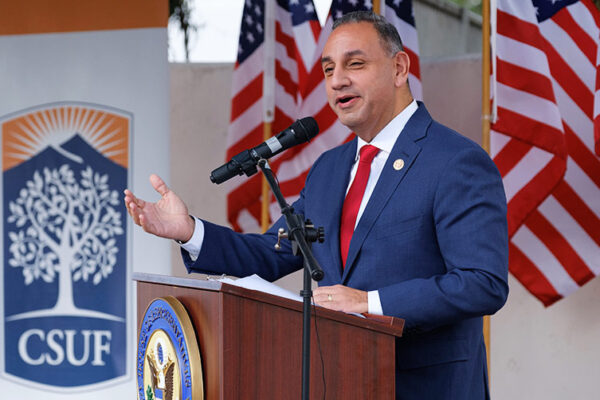A Bad Bunny endorsement could galvanize millennials and Gen Z, who see in him a reflection of their own struggles and aspirations. This is the same guy who wore a skirt on national television and made a song protesting violence against transgender women.
The Latino Vote—often referred to as the “Sleeping Giant” of American politics—has long baffled strategists for its unpredictability and low turnout. But what’s recently brought a twist to this giant’s snoring symphony is the curious emergence of machismo among Latino men as a factor tipping their support towards Donald Trump and away from figures like Kamala Harris.

Yes, the same machismo that glorifies swagger, dominance, and, for some reason, an odd affinity for WWE-style political showdowns has thrown a wrench in the Democratic outreach playbook. Latino men are being swayed by Trump’s tough-guy bravado and his not-so-subtle aversion to a powerful woman—especially one who checks the boxes of being Black, female, and holding higher office than them.
But hold your horses! Just when you thought Latino men were sauntering off en masse with the orange-haired showman, Kamala Harris’s camp had an ace up their sleeve: Bad Bunny.
Yes, folks, el conejo malo—the megastar of reggaetón, and arguably the most famous Puerto Rican since Ricky Martin—has been quietly tapped as the magic bullet to rally Latinos for the Democrats. I mean, if anyone can wake a sleeping giant, it’s probably the man who made thousands of people scream in perfect Spanglish at Madison Square Garden.
But let’s rewind. How did we even get here? Kamala Harris has been trying to court Latino voters, a bloc crucial to any Democratic victory, especially in swing states like Arizona and Nevada. While her team hasn’t officially locked Bad Bunny in as an endorser, the mere prospect has Democrats salivating over what could be “a Thanos-level event,” according to one strategist.
You know, the kind of cosmic shift where, with one snap, entire voting patterns change. Imagine Bad Bunny, with his gender-fluid style and lyrics that defy reggaetón’s traditional machismo, delivering a rallying cry that says, “Forget Trump, let’s do this for our raza.” It would be like combining the charisma of Che Guevara with the beats of Daddy Yankee.
Yet here’s where the story takes a Gabriel García Márquez twist. The magical realism of Latino politics is in full bloom. In the past month alone, three reggaetón artists—each of whom has collaborated with Bad Bunny—have thrown their sombreros into Trump’s ring. Wait, what? Yes, that’s right. These artists, traditionally seen as rebels of the genre, are now cozying up to the Republican establishment.
Suddenly, the question isn’t just whether Bad Bunny will join Kamala, but if the allure of machismo has now infected the entire musical genre. Could this be a plot twist straight out of “One Hundred Years of Solitude,” where you can’t tell if the banana plantation workers are for the people or for the imperialists?
So what exactly is it about Trump that’s causing Latino men to ditch their abuelitas’ advice and run toward MAGA rallies? Machismo, it turns out, is the key. Trump’s bombastic, chest-puffing displays of strength appeal to the deeply ingrained Latin American cultural trope of the hombre fuerte—the strong man.
Even Bad Bunny’s own lyrics sometimes glorify a certain defiant masculinity, though the singer himself has made efforts to break the mold. Meanwhile, Kamala Harris is up against the double-bind of being a woman who’s expected to be tough without coming off as, well, too tough—especially in a culture where la mujer is often relegated to the domestic sphere, or worse, is villainized for being ambitious.
But don’t lose hope for Kamala just yet. Latino politics is as unpredictable as a telenovela plotline, and the Bad Bunny factor could inject a wild, unforeseen twist. Latino voters—particularly the younger generation—are less swayed by traditional machismo than their elders.
A Bad Bunny endorsement could galvanize millennials and Gen Z, who see in him a reflection of their own struggles and aspirations. This is the same guy who wore a skirt on national television and made a song protesting violence against transgender women. In a way, Bad Bunny embodies a modern, inclusive masculinity that could resonate more than Trump’s retrograde version.
And while Latino men might be leaning right, there’s a simmering resistance among Latina women, whose voting power should not be underestimated. These women, often the heart of their communities, tend to vote in higher numbers and could counterbalance the male defection to Trump.
Harris’s team knows this, which is why they’ve been careful not to focus solely on the machismo of Latino men, but on the broader community’s shared values of family, faith, and opportunity.
In the closing weeks of this election, the Democrats’ Latino outreach will be critical, and Kamala Harris’s potential partnership with Bad Bunny is emblematic of the kind of Hail Mary pass they’ll need to throw.
Whether or not Bad Bunny actually steps up to endorse her remains to be seen, but even the prospect is enough to stir excitement. After all, in the unpredictable world of Latino politics, where magical realism often blurs the lines between fantasy and reality, anything is possible.
One minute you’re getting a Trump-endorsing reggaetón artist, and the next, Bad Bunny is leading a perreo intenso for Kamala on the White House lawn. Ay, Dios mío!
TONY CASTRO, the former award-winning Los Angeles columnist and author, is a writer-at-large and the national political writer for LAMonthly. org. He can be reached at tony@tonycastro.com.





